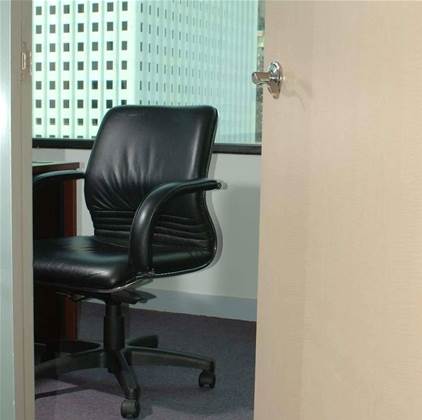As many as 200 workers could lose their jobs if the proposed merger of science and research bodies NICTA and CSIRO goes ahead, but the cuts would be far greater should the agencies stay separate, according to the CSIRO's chief executive.

The organisations announced plans to merge in February this year as a result of massive funding cuts by the federal government.
The CSIRO had its funding slashed by $115 million over four years in the 2014 budget, while NICTA suffered an even worse fate when the government decided to stop funding the organisation altogether after June next year.
CSIRO chief Larry Marshall told a senate estimates hearing this week the pair were very close to an agreement on the proposed merger.
"But as they say, the fat lady has not sung yet," he said.
"It is a wonderful opportunity to bring the two groups together and have one powerhouse, if you like, of ICT capability in the country. I think it is a unique opportunity and I am personally very passionate about trying to make it happen."
Tentative plans would see the NICTA digital productivity team merged into CSIRO under a new chief executive. The business would run as part of CSIRO, but as a separate company for a period of time, Marshall said.
"Then at some point in the future we might, and probably would—but not for a year or possibly more—actually merge it into CSIRO once we get an understanding of how to operate," he said.
When questioned on whether a merger would result in any job losses for employees, Marshall agreed some workers would be affected but argued the impact would be far worse should it not go through.
"If the merger goes ahead, obviously there will be way, way fewer job losses than if it does not. [NICTA] will run out of money in the middle of next year," he said.
CSIRO executive David Williams put the figure at up to 200 NICTA workers. The organisation currently employs just over 600 staff.
"The situation is that over the next 12 months [NICTA] will lose about 25 per cent of the total budget for the two entities, and that could translate into the worst case for over 200 people," he told the committee.
"We are working on areas of saving costs and we are working on areas of extra revenue to try and reduce that to the lowest possible total."
The organisations are currently looking at areas of overlap, which had been initially identified in support areas such as finance, marketing and HR.
"We have been working closely over the last several months with the HR team at NICTA so that any time there is an opening at CSIRO we have an opportunity to recruit a NICTA person into that position in order to minimise the impact," Marshall said.
"But it is inevitable, going forward, that some of those people in support functions will lose their jobs."
The pair were yet to make a decision on whether to retain individual branding for both organisations, Marshall said.



.png&h=140&w=231&c=1&s=0)

_(20).jpg&h=140&w=231&c=1&s=0)





 iTnews Benchmark Awards 2026
iTnews Benchmark Awards 2026
 iTnews Executive Retreat - Security Leaders Edition
iTnews Executive Retreat - Security Leaders Edition
 iTnews Cloud Covered Breakfast Summit
iTnews Cloud Covered Breakfast Summit
 The 2026 iAwards
The 2026 iAwards











_(1).jpg&h=140&w=231&c=1&s=0)



